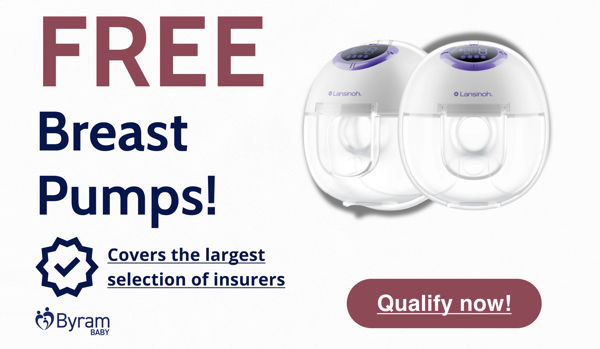With the state of the world as it is right now, you may find yourself feeling stressed and worried about the whole situation. Firstly, relax. Secondly, you might be wondering, “What happens to my little one if I contract coronavirus while pregnant?” The simple answer is very little.
‘I'm pregnant, what effects might the virus have on me?’
After a number of tests on patients, it’s been decided that pregnant women do not seem to be more susceptible to the virus. It is true, however, that we can not be sure of the exact ways it may affect you. Despite this, it is thought that pregnant women will only experience mild or moderate cold or flu-like symptoms. There are currently no reported deaths of pregnant women due to COVID-19, although you should still consider that people with underlying conditions and the elderly are more likely to experience severe symptoms and suffer possible complications.
‘What effect will the virus have on my baby if I’m infected while pregnant?’
Data currently suggests that the virus cannot be passed to your baby during pregnancy. One thing to consider is that some babies born to patients in China were born prematurely, however it is yet to be confirmed whether this is linked to the virus. If you are worried about your baby during your self-isolation period, do not go to the emergency room or a maternity triage unit. Instead, contact your midwife or a nurse hotline to help decide whether you need to visit the hospital. If you do, travel privately or by hospital transport, and call the maternity triage reception prior to arriving. While at this moment there is no evidence suggesting the virus can be passed to your baby, they may be tested for it post-delivery for safety.
‘What should I do if I test positive for the virus?’
Firstly, make sure you contact your midwife or prenatal team, making them aware of your diagnosis. If you have mild or no symptoms, you will be advised to recover at home. If your symptoms are more severe, you may be treated at a hospital. Whatever the decision, remember not to worry.
‘Can I go to prenatal classes if I am in self-isolation?’
Your midwife or prenatal clinic will need to be informed that you are in self-isolation for confirmed or unconfirmed coronavirus. At this point, they will be able to advise on what will happen. It is likely that your classes will be delayed until your isolation is over. If your midwife or doctor feels the appointment cannot wait, then the appropriate arrangements will be made to ensure your safety as well as the staff.
‘How will self-isolation affect my birth?’
In regards to where, it is being advised that women with suspected or confirmed coronavirus attend an obstetric unit for delivery. This ensures that you and your baby can be most effectively monitored. It is not currently recommended that you give birth at home or in a midwife-led unit, as monitoring may not be sufficient enough to ensure your safety and the safety of your newborn.
In regards to how, there currently is no evidence suggesting that you cannot give birth vaginally, or that a caesarean would be safer, so your birth plan should be followed as closely as it can be for your benefit. If your breathing suggests that you may need an urgent delivery, a caesarean may be recommended.
For pain relief, there is currently nothing to suggest that women with suspected or confirmed coronavirus can’t have an epidural or spinal block. Entonox, however, is not recommended due to the possibility of it spreading the virus. Your maternity team will discuss with you all the available options for pain relief on the day.
‘What if I go into labor during self-isolation?’
In this situation, call your maternity unit, informing them that you have a suspected or confirmed case of coronavirus. If your symptoms are mild, you will likely be encouraged to continue standard practise by staying at home during early labor. When you and your maternity team make the decision to send you to the maternity unit, it is recommended that you get to the hospital by private transport. If this isn’t an option, you can always call for an emergency transport, in which you would have to observe public safety regulations regarding the virus, such as wearing a mask.
‘Will I be able to stay with my baby once they’re born?’
Of course, although this is your choice. This is also providing that your baby is well and doesn’t require neonatal care. Despite this, a discussion should happen between you and your family and doctors about the risks and benefits, to allow your care to be individualised. This advice may change as more is discovered about the virus.
‘Can I breastfeed my baby?’
Yes, currently there is no evidence suggesting the virus can be carried in breast milk, and therefore the known benefits of breastfeeding outweigh the risks of transmission through breast milk. The main risk of breastfeeding is the close contact between you and your baby. So if you choose to breastfeed, it is advised that you wash your hands before touching your baby, breast pumps, and bottles, wear a face-mask while feeding, and thoroughly clean pumps and bottles after use.
This advice has all come directly from the findings of the Royal College of Obstetricians and Gynaecologists, and is subject to change as more is discovered about the virus. However, if you are still concerned about the wellbeing of you or your baby, then do not hesitate to contact your doctor or midwife, as they will be the most properly informed. Keeping in good contact will allow your team to give you personalized advice after considering your circumstances. The biggest takeaway of all this is simple; Try not to add stress or panic to your load and focus on having your wonderful new baby.





